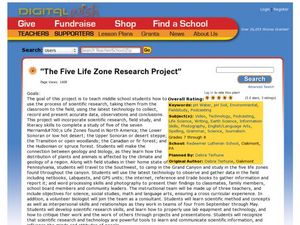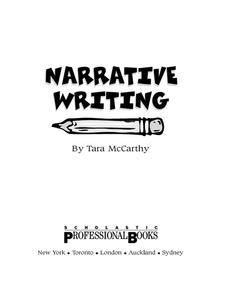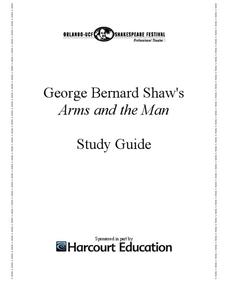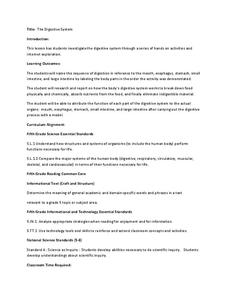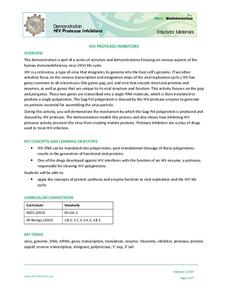Curated OER
The Five Life Zone Research Project
Students study five of the seven life zones in North America. In this journalism lesson students use the Scientific Method working in teams. They use lab equipment and technology to create a presentation on five of the seven life zones...
Leadership Challenge
Helping Students See the "Gift" in Feedback
How can you help pupils view feedback as a blessing and not a curse? Lesson seven in a series of 12 character and leadership activities focuses on the S.A.R.A mindset and how to support budding leaders in their journeys toward the...
Illustrative Mathematics
Christina's Candies
Help Christina figure out how many chocolate and lemon candies she has with a lesson on decomposing numbers. When presenting this context to the class, the teacher chooses the total number of candies and the number that are chocolate,...
Scholastic
Narrative Writing
If you're looking to start a unit based around narrative writing, make sure to consider this resource while you're planning. This book covers five topics: writing personal narratives, writing narratives about others, writing...
Howard Hughes Medical Institute
Viral Lysis and Budding
How do some viruses spread so quickly, and why do they make us feel terrible? Answer these (and many more) questions through a simple yet impactful lessons. Pupils observe demonstrations that show the two methods viruses use to escape...
Orlando Shakes
Arms and the Man: Study Guide
Few aspects of life make better fodder for a comedic play than politics. A study guide introduces George Bernard's Shaw comedy Arms and the Man. Along with summaries of each scene and brief biographies of the main characters, two lesson...
Serendip
Mitosis and Meiosis Card Sort
Cells divide by one of two processes, either mitosis or meiosis. Scholars sort cards into two sets, one representing each type of cell division. Then, they sequence the cards demonstrating an understanding of the movement of chromosomes.
Teach Engineering
Designing a Robotic Surgical Device
The engineering design process meets laparoscopic surgical robots with an activity that is the last part in a series of 10 and brings all the lessons of the unit together. Teams design and build a remotely controlled laparoscopic device....
Curated OER
The Digestive System
Discover how the human body's digestive system works with a brain and stomach friendly activity. Scholars taste test a variety of foods to find out how they behave once in the mouth. Class members then play a game called Move That...
Howard Hughes Medical Institute
HIV Protease Inhibitors
How do doctors fight a virus that's constantly mutating? Show science scholars how we fight HIV using one of its own most fundamental processes through a thoughtful demonstration. The lesson focuses on how protease inhibitors prevent HIV...
Curated OER
The Random Walk II
Deep mathematical thinking is found with just a coin and a number line. Combining computing some probabilities in a discrete situation, and the interpretation of a function, this simple task gives learners a lot to think about on...
Teach Engineering
Sugar Spill!
Sugar isn't good for you, but it's great for yeast! Scholars design an experiment to investigate how variables affect the rate of sugar consumption in yeast. The last installment of a nine-part Life Science unit considers how scientists...
PBS
Color Code
Don't let your brain play tricks on you! Learners test brain reaction rates while it is receiving multiple stimuli. They time each other reading a set of color words written in different colors and again when they are written in black....
Scouts
The Deadly Picnic: A Lab on Deductive Reasoning
Whodunnit? Find out who killed Mr. Brooks through a logical examination of evidence. Class members fill out a couple of data tables to help them pin down the suspect. After they've figured out just who the culprit is, pupils compose...
Butterfield Canyon Elementary
Think Win-Win: Everyone Can Win
Can there be scenarios where everyone feels happy with the result? Learn about win-win situations and conflict resolution with a series of exercises and games designed to encourage teamwork and cooperative learning.
University of Oxford (UK)
Oxford University Museum of Natural History: Seven Life Processes
Explore the seven life processes that describe whether an animal is alive or not. Each characteristic is defined with examples and pictures. Also included is a living animal quiz to test how much you have learned.
